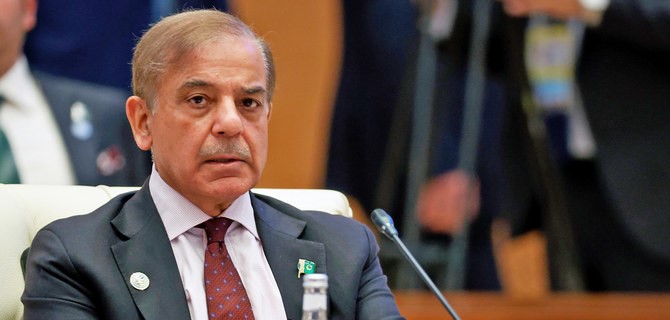PM Office clarifies action is to bolster ongoing armed forces efforts, without mass displacement
Fazl, ANP criticize decision; Gandapur claims apex body didn’t discuss any ‘operation’
Asif says parliament will be consulted, apex committee decision was consensual
ISLAMABAD/QUETTA/PESHAWAR: In a late-night statement, the government clarified that the campaign under Azm-i-Istehkam would not be a kinetic large-scale military operation nor cause mass displacement of the local population.
This clarification followed intense opposition criticism of the government’s plans to launch military action without consulting parliament, ostensibly to counter the rising threat of terrorist violence.
Announced on Saturday, the reinvigorated national counter-terrorism campaign aims to support the armed forces’ kinetic efforts with law enforcement agencies’ support and effective legislation to address legal gaps hindering terrorism-related prosecutions.
However, opposition parties, including PTI, JUI-Fazl, and ANP, strongly criticized these plans both inside and outside parliament. The KP chief minister even denied discussing such plans during the apex committee meeting last week.
In response to these concerns, the PM Office stated that previous kinetic operations aimed to dislodge terrorists from no-go areas, which required mass displacement and systematic clearance. Now, as there are no such areas and terrorists’ ability to conduct large-scale operations has been degraded, no large-scale military operation involving population displacement is planned.
Azm-i-Istehkam is described as a “multi-domain, multi-agency, whole of the system national vision” for enduring stability, meant to reinvigorate the ongoing implementation of the Revised National Action Plan initiated by national consensus. The proposed campaign will energize intelligence-based operations to root out terrorists, the crime-terror nexus, and violent extremism.
JUI-F, ANP oppose move
Following PTI’s stance in the National Assembly, other opposition parties like JUI-F and ANP also opposed the proposed operation. JUI-F chief Maulana Fazlur Rehman in Quetta criticized the apex committee’s decision, suggesting it weakens the country and that PM Shehbaz Sharif lacks decision-making power. ANP echoed these concerns, insisting on consultation with the National Assembly, Senate, and stakeholders.
The ANP also questioned negotiations with militants by a former intelligence chief and criticized the limited implementation of the National Action Plan, calling for action against banned organizations operating under different names.
Defence Minister Khawaja Asif defended the move, stating the decision would be discussed in an in-camera session of parliament. He clarified that the decision wasn’t final and would go through the cabinet and be presented to the House. Asif claimed that KP Chief Minister Ali Amin Gandapur participated in discussions and a consensus was reached.
Gandapur disowns
Conversely, CM Gandapur denied that the apex committee discussed Azm-i-Istehkam, stating only policy matters and the law and order situation were discussed. He sought a meeting with the army chief and ISI chief for further clarification.
KP Governor Faisal Karim Kundi accused Gandapur of silently agreeing to the decision during the apex committee meeting. Kundi suggested holding a provincial assembly session and a special cabinet meeting to discuss the security situation and take members into confidence, proposing meetings in volatile areas rather than air-conditioned rooms.




